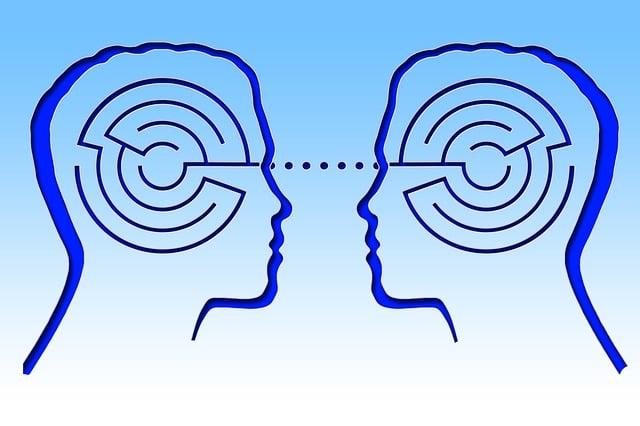In teh quest for a restful night’s sleep,the choice of mattress can be a make-or-break factor,especially when it comes to the alignment of our bodies and the quality of our posture. As more people grapple with discomfort and lingering aches, the debate over the ideal mattress firmness intensifies. Firm mattresses are often hailed as the gold standard in promoting spinal alignment and reducing back pain, but are they truly the solution? To unravel this question, we turn to experts in the field: chiropractors. Their insights not only illuminate the relationship between mattress choice and posture but also guide us through a curated selection of chiropractor-approved mattresses that promise to deliver both comfort and support. Join us as we explore the benefits and potential pitfalls of firm mattresses in relation to posture, ensuring that your next sleep investment is one that supports your overall well-being.
Understanding the Connection Between Firm Mattresses and Spinal Alignment
When it comes to finding the perfect mattress for optimal spinal health, firmness plays a crucial role. A firm mattress is designed to support the natural curvature of the spine, ensuring that your body stays properly aligned during sleep. This alignment is essential for reducing the risk of developing chronic pain and discomfort.Factors contributing to effective spinal alignment include:
- Supportive Surface: A firm mattress prevents excessive sinking, allowing the body to maintain its natural posture.
- Pressure Relief: by distributing weight evenly, firm mattresses can alleviate pressure points, contributing to a more restful sleep.
- Muscle Relaxation: Proper alignment helps the muscles to relax effectively, reducing tension throughout the body.
It’s crucial to note that firmness preferences can vary from person to person. While some may find solace in a firm surface,others might need a bit of cushioning to accommodate their unique body shapes and sleeping positions. A balanced approach often includes considering both firmness and the overall material composition of the mattress. to illustrate this, here’s a simple comparison of different mattress types based on firmness and spinal support:
| Mattress Type | Firmness Level | Spinal Support |
|---|---|---|
| Innerspring | Medium to Firm | Good |
| Latex | Firm | Excellent |
| Memory Foam | Medium | Fair to Good |
| Hybrid | Variable | Excellent |

expert Insights: chiropractor Recommendations for Optimal Comfort
When it comes to choosing the right mattress for optimal comfort and posture,chiropractors emphasize the importance of support and firmness. A firm mattress can provide a solid foundation for your spine, helping to maintain its natural curvature. this type of mattress can reduce the risk of aches and pains caused by poor alignment during sleep. Here are a few reasons why chiropractors reccommend firm mattresses:
- Spinal Alignment: A firm mattress promotes a neutral spine position, reducing pressure on the lower back.
- Reduced Pain: Keeping your body properly aligned can lead to fewer morning aches, resulting in a more restful sleep.
- Better Sleep Quality: Enhanced support can definitely help you maintain deep sleep phases,leading to overall improved well-being.
When selecting a firm mattress, consider materials that provide both comfort and durability. Memory foam and latex options are popular among chiropractors due to their ability to contour to the body’s shape while still offering firmness. Here’s a brief overview of some chiropractor-approved mattress types:
| Mattress Type | Benefits |
|---|---|
| Memory Foam | Conforms to body shape, alleviating pressure points. |
| Latex | Offers bounce and resilience,promoting spinal alignment. |
| Innerspring | Provides strong support with a traditional feel. |

Choosing the Right Firm Mattress for Your Body Type
When selecting a firm mattress, it’s essential to consider how your body type interacts with different levels of firmness. **Heavier individuals** may benefit from a medium-firm to firm mattress that can provide the necessary support without sinking too deeply. This helps maintain the natural curvature of the spine, promoting better posture. On the other hand, **lighter individuals** often find comfort in a slightly softer option that can cradle their pressure points, ensuring they don’t feel disconnected from the mattress. Both options can provide a solid foundation for restful sleep, but tailoring your choice to your unique body type can amplify the benefits.
Prior to making a decision, consider the following aspects:
- Sleep Position: Your primary position (back, side, stomach) can dictate which firmness level is optimal.
- Weight Distribution: A mattress that responds well to your weight can eliminate pressure points.
- Material Preference: memory foam, latex, or hybrid mattresses each offer distinct support characteristics.
Below is a speedy reference table to help match body types with mattress firmness levels:
| Body Type | Recommended Firmness | Suggested Material |
|---|---|---|
| Lightweight (<150 lbs) | Soft to Medium | Memory Foam |
| Average (150-200 lbs) | Medium | Latex or Hybrid |
| Heavyweight (>200 lbs) | Firm | High-Density Foam |

Real-Life Success Stories: Improved posture with Firm Mattress Choices
The Conclusion
when it comes to the intricate relationship between mattress firmness and posture, the insights from chiropractic professionals provide a valuable lens through which we can evaluate our sleep choices. While firm mattresses may offer enhanced support for some individuals, it’s essential to recognize that the best mattress is ultimately one that caters to your unique body type, sleeping position, and personal comfort preferences. As we navigate the realm of sleep, let us remember that every night’s rest is an opportunity to invest in our well-being. Whether you choose a chiropractor-approved firm mattress or explore other options, prioritizing a supportive sleep surroundings is a crucial step towards healthier posture and overall spinal health. Sweet dreams, and may your sleep be as restorative as it is comfortable!


